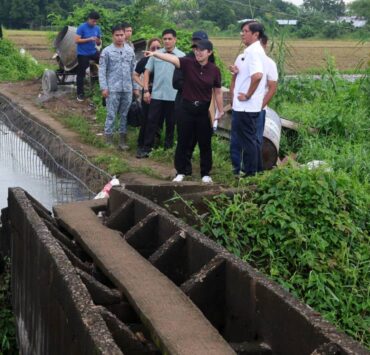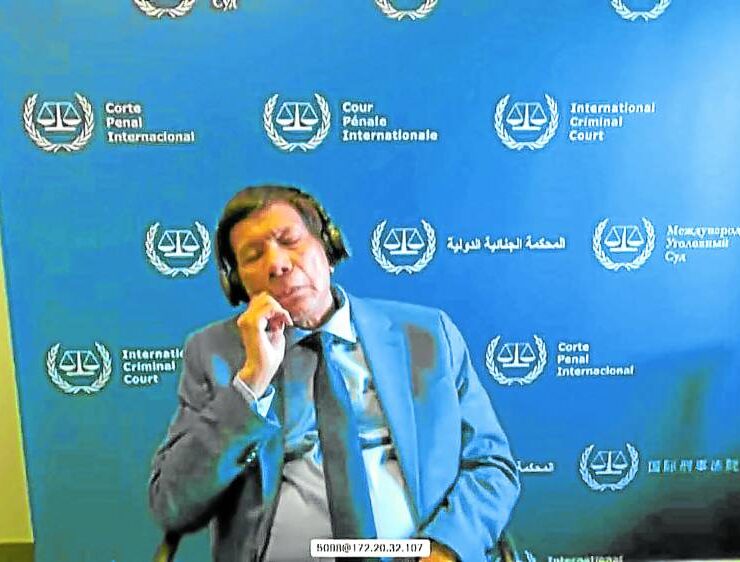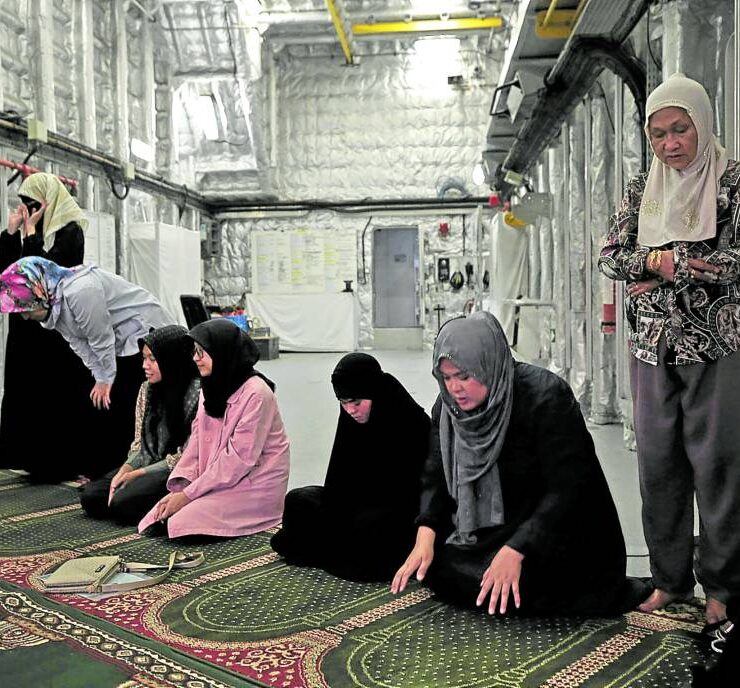Torre files leave; Nartatez vows ‘fair’ reassignments
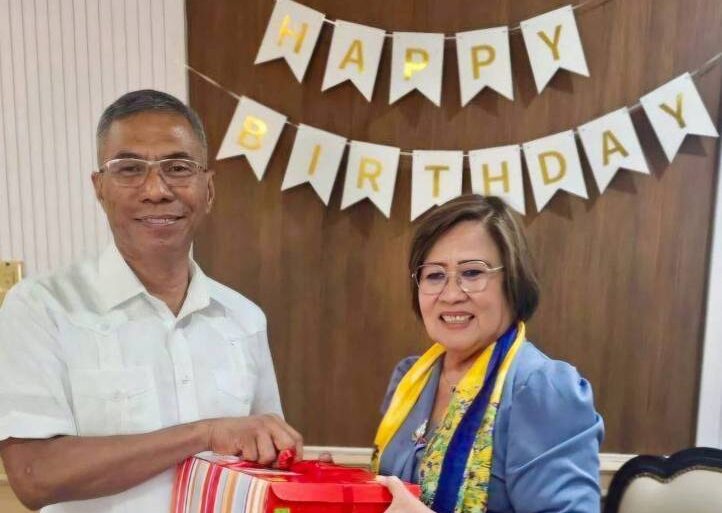
Police Gen. Nicolas Torre III has filed a leave of absence to await further developments following his relief as Philippine National Police (PNP) chief.
Torre spoke of his plan to go on leave in an ambush interview at the House of Representatives on Wednesday, where he also said he would soon release a statement addressing issues related to his sudden removal as PNP chief.
This includes his reaction to Sen. Panfilo “Ping” Lacson’s statement that he was fired because he overstepped his authority in shuffling key PNP officials.
Acting PNP chief Lt. Gen. Jose Melencio Nartatez Jr., who has been tapped to replace Torre, meanwhile, guaranteed that future reassignments will be fair and transparent.
“I always respect the opinion of everybody, especially from a former chief of PNP. I’ll take note of it and give my reaction,” Torre told reporters, referring to Lacson, who headed the PNP during the Estrada administration.
“Now, whether I agree or not, I’ll just include it in the statement, you can deduce it from the statement that I will make,” he added.
Asked when he would release it, Torre said he cannot give a definite date because he took a leave of absence.
“I can’t really give a timeline, I took a leave, which I will do I think for the second time in my career […] I’m planning to use the maximum leave authorized […] Obviously, I need the time off also to answer reporters,” he added.
Torre was at the House to visit ML party list Rep. Leila De Lima. He said he still supported President Marcos and had no ill feelings. “I’m a good soldier,” he said.
New post
Torre led the arrest of former President Rodrigo Duterte last March based on a warrant issued by the International Criminal Court and transmitted by Interpol. He said this was not the first time that he has been relieved from a post.
“I’ve been an officer for more than 30 years. This is not the first time that this has happened in my career, okay? Time and again I come and go, come back, bounce back and do something again and be credited for it,” he said.
In Malacañang, Palace press officer Claire Castro confirmed that Mr. Marcos has offered Torre another government post.
Castro, however, said the post will only be known “once General Torre accepts the position” and did not detail whether it was a Cabinet position, which would be a promotion as the PNP chief post is equivalent to undersecretary rank.
Interior Secretary Jonvic Remulla earlier hinted that Torre’s skills could be useful in the government’s ongoing probe into anomalous infrastructure projects under the Department of Public Works and Highways.
“He will be very useful in the government’s anti-corruption campaign. That’s where he is skilled at. He’s good at investigation. His expertise is a great addition to forming a commission to investigate the flood control projects,” he said.
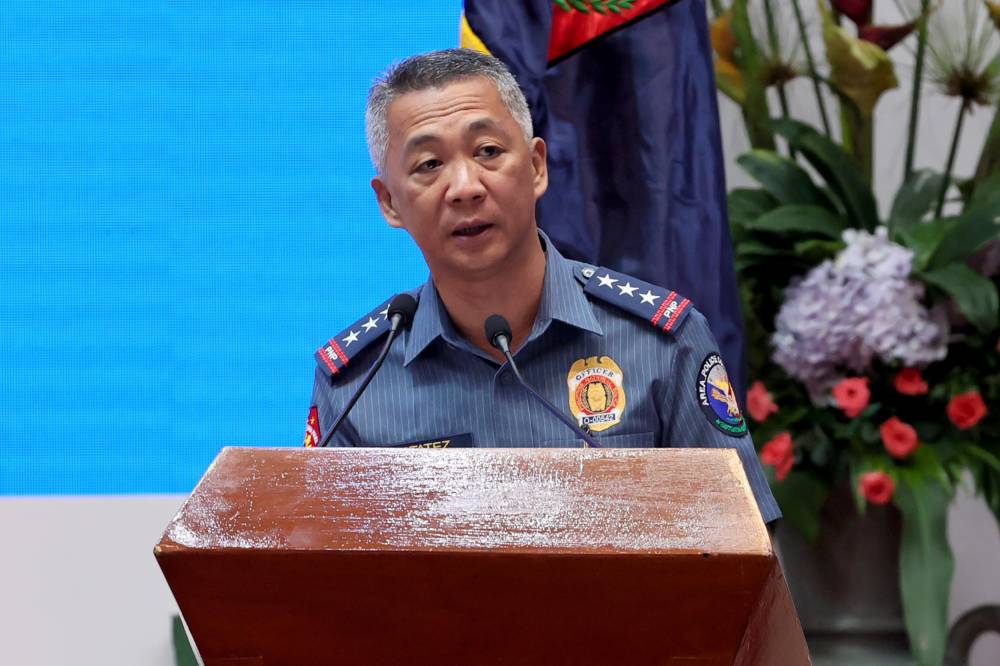
Fair, transparent
Nartatez, meanwhile, said also on Wednesday that restoring trust with the police ranks was his priority.
He made the vow after the National Police Commission (Napolcom) recently recalled the transfer of 12 senior officers. The reshuffle issue has been linked to Torre’s sudden replacement.
“Placement and reshuffle are part of managing our resources—from recruitment until retirement,” Nartatez told reporters in Camp Crame. “That means continuous training, looking at physical and mental wellness, and making sure the morale and welfare of our personnel are protected.”
He vowed to prioritize the morale and welfare of police personnel as he formally assumed command of the 230,000-strong force.
8-point agenda
Nartatez also said he would anchor his leadership on an eight-point agenda focusing on three resources: manpower, logistics, and finances. He emphasized that the PNP’s “warm bodies,” its officers and staff, are the institution’s most valuable asset.
“All organizations succeed or fail based on how they manage their resources,” he said. “In the PNP, that means people, equipment, and finances. Personnel welfare comes first.”
Nartatez had previously served as PNP deputy chief for administration, the second-highest position in the national police force, before Torre reassigned him to the Area Police Command-Western Mindanao on Aug. 6.
He said he will initiate an audit of all PNP units and study where to designate personnel.
The new police chief also said that reshuffles or reassignments are common in the force.
“If we have activities or major operations or major missions within our jurisdiction, then we have to place somebody there, including the team to get there,” he said.
New spokesperson
Nartatez also confirmed that Brig. Gen. Jean Fajardo was no longer the PNP’s spokesperson and that communications with the media will now be handled by the Public Information Office (PIO).
He said he is considering Police Brig. Gen. Randulf Tuaño, PIO chief, to be his spokesperson.
The change in spokesperson comes as the PNP undergoes transition following Torre’s relief and the recall of his senior officer reassignments by the Napolcom.
Napolcom vice chair and executive officer Commissioner Rafael Vicente R. Calinisan welcomed Nartatez’s decision to relieve Fajardo as spokesperson, saying the post should be aligned with the PIO.
Calinisan explained in a statement on Wednesday that since Fajardo is detailed with the Directorate for Comptrollership, she is no longer in the proper office to serve as the organization’s spokesperson.
Public trust
Beyond internal reforms, Nartatez said he intends to strengthen police operations by enhancing the management of police operations, which integrates crime prevention, patrols, combat operations, and the arrest of wanted persons. He underscored that public trust remains central to law enforcement.
“Peace and order is a shared responsibility of the police and the public,” he said.
He added that the PNP will continue to refine policies on recruitment, retirement, morale programs, and training to raise professionalism and effectiveness in the ranks. While he has yet to announce changes in the command group, he assured personnel that any reshuffles will be based on accountability and organizational needs.
“I have only been here for 24 hours, but morale, fairness, and effectiveness will be the basis moving forward,” he said.—WITH REPORTS FROM DEXTER CABALZA AND JASON SIGALES















